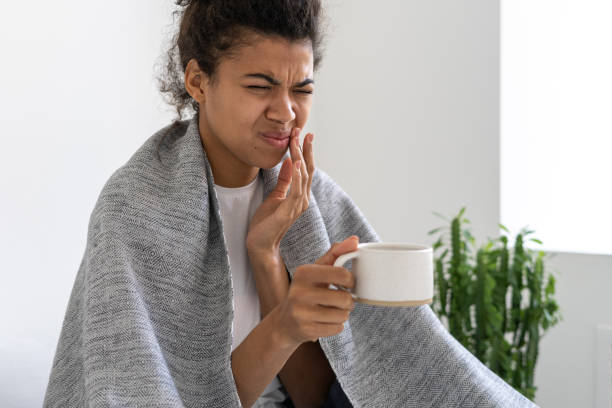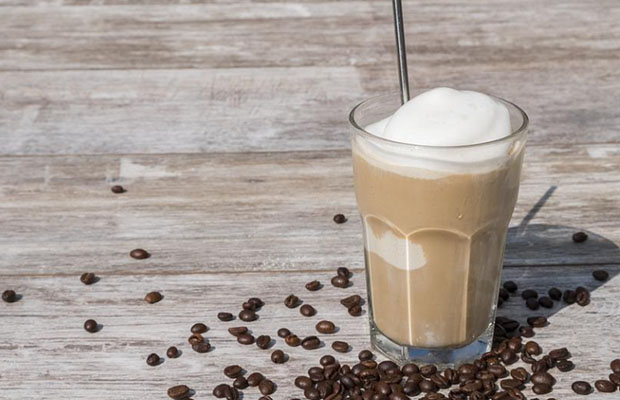You need coffee to get your day started if you’re like most adults. The National Coffee Association reports that 54% of Americans over the age of 18 start their day the same way, whether they brew a fresh cup of coffee at home or go to the nearest Starbucks. Your dentist has some concerns about regularly consuming coffee, despite the fact that it has many health advantages, including a reduced risk of cancer, stroke, and diabetes. It can actually damage your teeth, believe it or not. If you must have your morning coffee, here’s what you should know to maintain a beautiful smile.
How Does Coffee Harm Your Teeth?
Staining
Almost all of the foods and beverages we consume, including tea, red wine, curries, and bolognese, including coffee, do stain our teeth. However, because most of this type of staining occurs outside the tooth’s surface, it is easily removed during your regular six-month dental checkup. The degree of enamel surface abrasion, the variety of salivary enzymes, and the types of bacteria that inhabit our mouths all contribute to the staining of some people’s teeth more than others.
It should be noted that external stains do not have a significant impact on the teeth’s OVERALL BASE COLOR. Giving up coffee won’t make your teeth look better if you feel they are dark or yellow. The best way to whiten teeth is with professional-grade bleaching or whitening. Customized take-home whitening kits made according to a dentist’s instructions are typically thought to deliver the longest-lasting whitening results in the most secure manner.
Sugar
The risk of tooth decay is extremely low as long as you do not add sugar to your tea or coffee, so this is a big one. On the other hand, whenever we drink a sugary beverage, we feed the bacteria in our mouths that cause decay. If you’ve consumed a lot of fillings, sugar has likely been a significant factor ever since you were young. Since it’s in almost everything we eat, avoid adding any extra to your daily beverages, especially considering that we spend a lot of the day sipping.
If you really must sweeten your coffee, try switching to an artificial sweetener instead since these do not encourage decay, then gradually wean off.
Dehydration
Because caffeine has a diuretic effect, the majority of us need to use the restroom shortly after drinking coffee. This indicates that water is drawn from body tissues and sent to the bladder, frequently leading to dehydration. When our bodies are dehydrated, the vital organs take precedence, and glands like the ones that produce saliva are essentially shut off.
The most significant defense against all oral diseases is saliva. Without saliva, our teeth would deteriorate into gum stumps, and our mouths would be filled with decay and fungus. Thankfully, we never completely stop producing saliva, but the quantity and quality of saliva decline significantly as we become dehydrated. You have likely been dehydrated for hours by the time you feel a “dry mouth”!
Make sure to drink plenty of water throughout the day to prevent this, and drink an additional glass of water for each cup of coffee you consume.

How to Keep Your Teeth Clean
Brush After Coffee
Be sure to brush your teeth after each cup, whether you drink your morning coffee at home, while you’re out and about, or as a pick-me-up at work.
The stains-causing bacteria are eliminated by brushing. The fluoride also makes your enamel stronger, further protecting your teeth.
Another benefit of this liquid gold is that you’ll stop having coffee breath.
Use a Straw
You can avoid some effects by using a straw because tannins make the pigments stickier to your teeth.
Instead of slamming into your teeth, straws direct your coffee to the roof of your mouth. The exposure is still present, albeit to a lesser degree.
Rinse
After you finish your cup, rinse your mouth with water if you can’t get to a bathroom to brush.
Keep in mind that some of the effects of the bacteria can be resisted by your saliva and water. Although it doesn’t replace brushing, leaving the bacteria to grow is much worse.
Get Regular Cleanings
Are you getting your yearly and biannual cleanings? As you age and your tooth enamel changes, these become even more crucial.
Cleanings involve more than just giving your teeth a good scrub. They also polish your enamel to confirm its function as a shield between the outside world and your teeth. More stains are prevented from developing on polished teeth.
Do not forget that other substances can also stain. Additionally, red wine, soft drinks, and berries all contain tannins.
Choose Teeth Whitening Treatments
You shouldn’t always use teeth whitening procedures to achieve a whiter smile. The majority of the work will be done for you by brushing, regular cleaning, and staying hydrated.
Avoiding stains altogether is the best defense against them.
When those stains do develop and become embedded, though, teeth whitening is invaluable. In time for a job interview, wedding, or family photo shoot, it’s also a great way to whiten your teeth.
Conclusion: Not Inherently Worse
Are teeth harmed by coffee? It will discolor them, but it won’t necessarily harm your smile more than other beverages. It actually causes less harm than black tea.
Brushing, drinking lots of water, and going to the dentist regularly will all help to keep your smile healthy.




